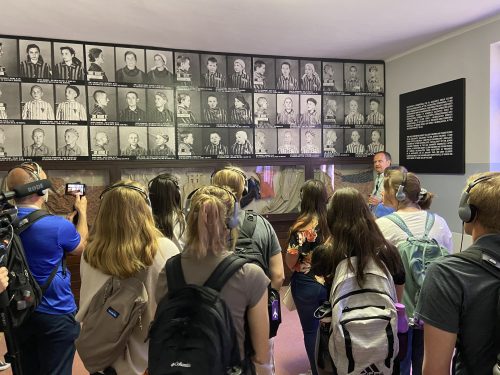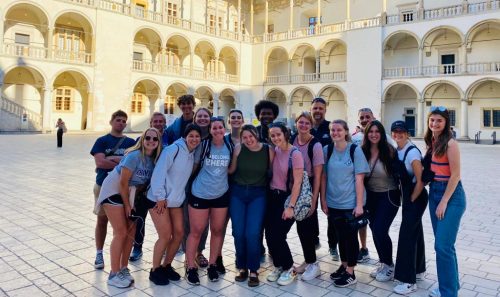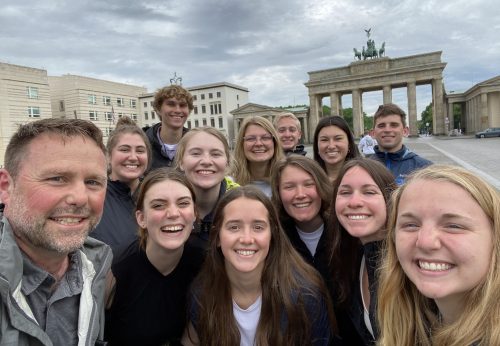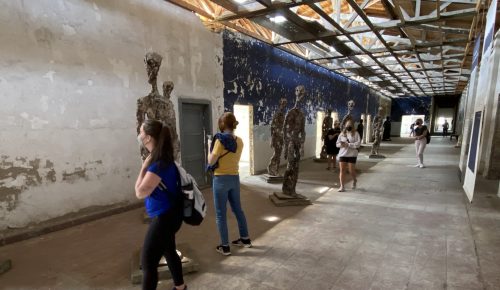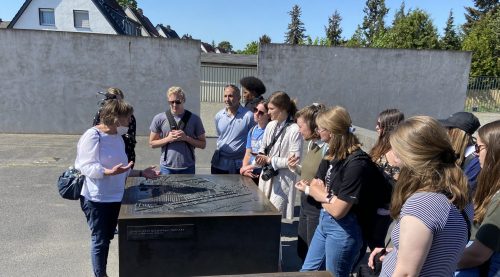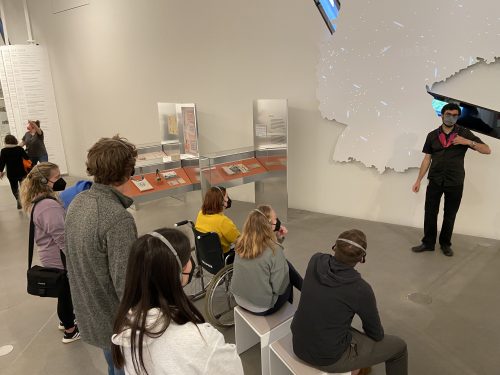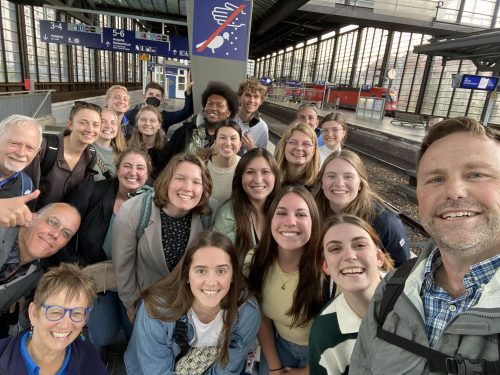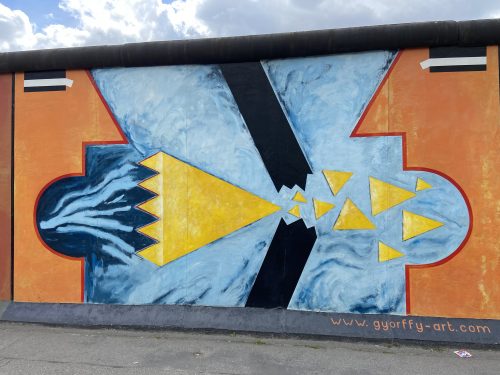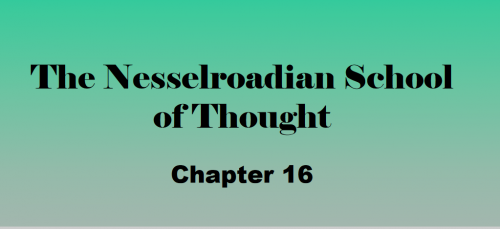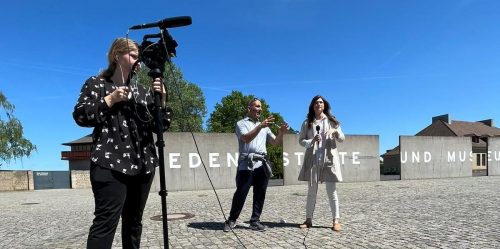
Don’t Forget Us: A Walk Through the Holocaust
Asbury’s Video/Journalism Students at work The Human Dignity Tour this year had the privileged benefit of a 5-student video/journalism crew joining us on our exploration. Under the direction of professor, Rich Manieri, these students are working to develop a suite of media and journalism pieces associated with the trip. A few are already posted on their webpage: https://dontforgetus2022.wixsite.com/dontforgetus. I will add additional blog posts as more content is developed.
